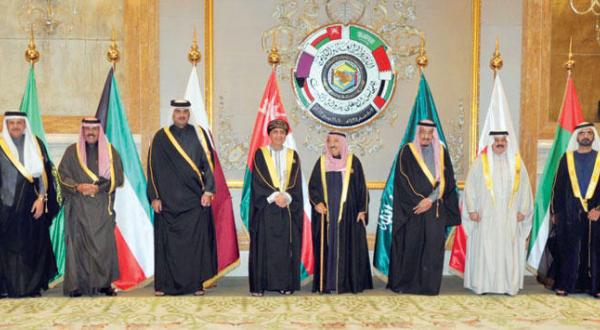The Saudi Arabian capital is hosting the 36th Gulf Cooperation Council summit today in which leaders of the GCC countries will participate. At the top of the agenda are meetings to discuss Gulf unification in addition to the main issues in the region; the most important of which are Yemen, Syria, Iraq, Libya and the issue of Palestine. The Saudi Minister of State for Foreign Affairs Dr. Nizar Bin Obaid Madani told Asharq Al-Awsat that hopes are pinned on the results of this conference to make the transition from the phase of cooperation to Gulf unity. He added that this matter will be among the issues on the agenda and the stages leading to achieving it will be reviewed.
The Custodian of the Two Holy Mosques King Salman bin Abdulaziz received the Secretary General of the Gulf Cooperation Council Dr. Abdul Latif bin Rashid Al Zayani in his office at the Palace of Yamama yesterday. During the meeting they discussed ways of strengthening the joint course of GCC action and reviewed the most important topics on the agenda of the GCC summit.
The GCC secretariat confirmed that its political affairs section has started to follow up and implement the political decisions and directives issued by the supreme council, the ministerial council and joint meetings with member states and international groups regarding regional and international developments and topics which concern the GCC such as the Iranian occupation of the three islands belonging to the UAE, Iran’s nuclear programme, the conditions in the Palestinian territories, the developments in the Arab-Israeli conflict, Syria, Yemen, Iraq, Libya and other issues.
The political affairs section also monitored regional and international developments and resolutions of the Security Council, the Arab League and regional and international organisations which are of interest to the GCC. It also participated in regional and international activities, and strategic dialogue meetings between the GCC, member states and international groups.

